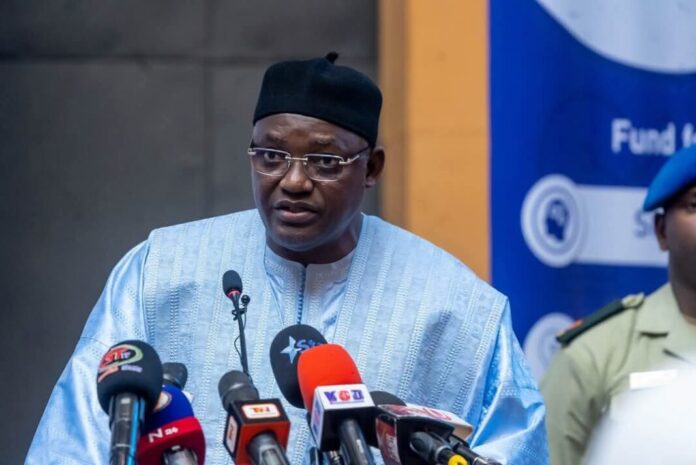The President of the Gambia, Adama Barrow, has officially launched a new initiative to overhaul the country’s public administration system and ensure more efficient service delivery.
Speaking at the launch of the Public Administration and Modernisation Project (PAMP) in collaboration with the World Bank, President Barrow described the programme as “a crucial cornerstone for achieving our national objectives of consolidating democratic governance, accelerating green economic and social transformation, and building resilience against future shocks.”
The project seeks to address longstanding inefficiencies in The Gambia’s public service by focusing on three key areas: strengthening domestic resource mobilisation, improving human resource management in the civil service, and enhancing citizen engagement in education.
Barrow emphasised the need to modernise service delivery, stating that “for too long, The Gambia’s public service has faced challenges that have occasionally hindered its ability to deliver services effectively and equitably.” He added that the government is committed to creating a transparent and accountable system that places citizens at the centre of governance.
A key component of PAMP is the introduction of an Integrated Tax Administration System to optimise revenue collection. Additionally, reforms in education will incorporate public feedback mechanisms through redesigned School Report Cards, alongside new environmental initiatives such as the “green” school certification.
Barrow urged all stakeholders—including government institutions, development partners, and citizens—to actively participate in the project’s success. “Working together, we can build a public administration that is truly modern, citizen-centred, and a source of national pride,” he said.
The initiative will be supported through the World Bank’s Programme for Results instrument, ensuring that funding is directly linked to the achievement of key reform goals.
The launch marks a significant milestone in The Gambia’s efforts to strengthen its institutions and improve governance across all levels.




